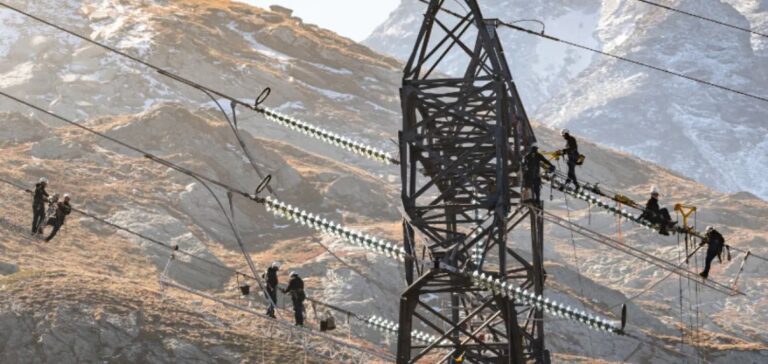The French government has announced a major investment plan to modernize the national electricity grid, with financial commitments reaching €100 billion by 2035. This initiative aims to meet the growing demand for electricity and more effectively integrate renewable energy sources. The plan is part of the country’s energy transition, as France seeks to reduce its dependence on fossil fuels while securing energy supply.
Objectives of the Investment Plan
This ambitious investment program plans to modernize the infrastructure for electricity transmission and strengthen the grid’s resilience against climate challenges and increased energy needs. According to RTE, the manager of the electricity transmission network, this investment is essential to accommodate the shift towards renewable energy sources, such as wind and solar, and to ensure a stable supply. The funding will also cover the construction of new high-voltage lines and the implementation of advanced technologies for more flexible energy management.
Controlled Costs for Consumers
Despite the scale of the investments, RTE assures that the impact on consumer bills will be limited. According to the company, the modernization of the grid should result in only a moderate increase in costs, estimated at around 10% by 2035. This figure remains well below the price hikes observed in recent years, driven by market fluctuations and the rising costs of gas. This estimate is based on efficient cost management and an equitable distribution of investments among the various stakeholders in the sector.
An Adapted Economic Model
RTE emphasizes that the financial impact of this project will largely be absorbed by the state and energy producers, rather than by the end consumers. Companies in the sector, along with the grid operator, are relying on diversified financial solutions, including public subsidies and private partnerships. However, some experts remain cautious about the long-term balance of the costs related to the maintenance and expansion of the grid. Current forecasts could change depending on the evolution of raw material prices and infrastructure needs.
A Response to Energy Market Challenges
This initiative is part of a broader effort to modernize the European energy sector, where several countries, including France, face similar challenges. The ability of the grid to integrate renewable energy remains a major issue, especially during periods of high demand. At the same time, French authorities are monitoring the energy market, particularly electricity prices, which have fluctuated significantly in recent years, largely due to the costs of natural gas.






















